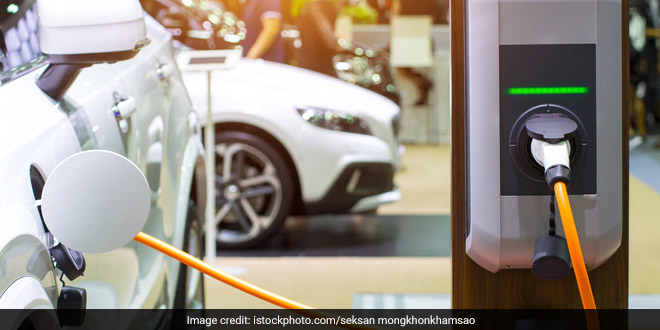New Delhi: The Delhi government will float a tender in January to procure 1,000 electric vehicles, Delhi Transport Corporation’s (DTC) Managing Director Manoj Kumar said on Thursday.
These vehicles would be procured by the Delhi Integrated Multi-Modal Transit System (DIMTS) and would begin to ply the Delhi roads by June next year, he said.
He was speaking at a conference “Transforming Urban Mobility in India and Role of Electric Vehicles” under the aegis of the PHD Chamber of Commerce and Industry (PHDCCI) here.
Also Read: People In India Want Electric Vehicles To Reduce Air Pollution, Says Climate Trends Survey
Mr. Kumar pointed out that the cost of electric vehicles is “on a higher side” and requested the manufacturers to lower the prices so that more e-vehicles could be brought in.
In 2016, the DTC ran a few e-buses on a trial basis, with each costing Rs 2.5 crore, as against a usual CNG bus of Rs 45 lakh. We request the manufacturers to cut some cost so that more e-vehicles could be plied not only on Delhi roads but also in other states so that air pollution is contained, Mr. Kumar said.
Similarly, he said, charging facilities should be widely available so that recharging the e-vehicles does not become a problem or inconvenience for both operators and users.
Also Read: Not Just Respiratory System, Air Pollution May Also Severely Affect Eyes: Doctors
The DTC MD’s announcement came just two days after the Delhi government released its draft “Electric Vehicle Policy 2018” with the aim toadoption of 25 per cent e-vehicles among new registrations by 2023. The policy has committed to strengthen the infrastructure for “battery charging and swapping” to provide access within a 3-kilometre range from anywhere in Delhi.
NDTV – Dettol Banega Swachh India campaign lends support to the Government of India’s Swachh Bharat Mission (SBM). Helmed by Campaign Ambassador Amitabh Bachchan, the campaign aims to spread awareness about hygiene and sanitation, the importance of building toilets and making India open defecation free (ODF) by October 2019, a target set by Prime Minister Narendra Modi, when he launched Swachh Bharat Abhiyan in 2014. Over the years, the campaign has widened its scope to cover issues like air pollution, waste management, plastic ban, manual scavenging and menstrual hygiene. The campaign has also focused extensively on marine pollution, clean Ganga Project and rejuvenation of Yamuna, two of India’s major river bodies.






























